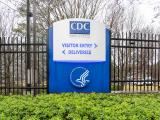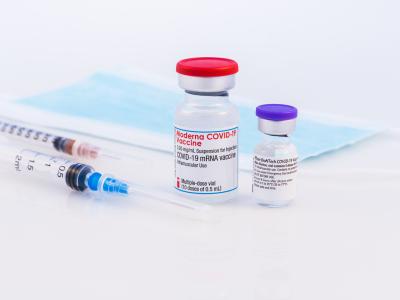Feb 9, 2010 (CIDRAP News) – A comprehensive review of the nation's tools for reducing the impact of a biological weapons attack or other public health emergency—prompted in part by last fall's delays in delivery of the pandemic H1N1 vaccine—is due to get under way in the next few weeks with a pair of conferences.
A two-day workshop on how to improve the development of medical countermeasures to respond to health emergencies was scheduled for this week (Feb 10-12) in Washington, DC. But it has been postponed to Feb 22, 23, and 24 because of the snowstorms pummeling the area, according to Gretchen Michael, spokeswoman in the Office of the Assistant Secretary for Preparedness and Response at the Department of Health and Human Services (HHS).
The meeting agenda features a long list of government and industry officials, who will discuss ways to remove obstacles to the development of drugs, vaccines, and diagnostics to counter threats such as pandemic influenza and anthrax attacks. It is being held under the auspices of the National Academy of Sciences' Institute of Medicine (IOM).
The other meeting is a workshop being organized by the National Biodefense Science Board (NBSB) to review the management and structure of the countermeasures development program. Planning of the workshop is on the agenda for the NBSB meeting tomorrow.
The review of what's being called the Public Health Emergency Medical Countermeasures Enterprise was announced by HHS Secretary Kathleen Sebelius in a speech to the American Medical Association in December. She cited the slow delivery of H1N1 vaccine, blamed primarily on low yields of the egg-based vaccine antigen, as a major reason for the review.
"We were working to squeeze every last bit of efficiency and dependability out of a safe, but outdated technology," Sebelius said. "It was like an old car we had tuned up but still didn't accelerate like we needed it to."
Sebelius didn't mention anthrax, but other experts have noted that the nation is still waiting for a second-generation anthrax vaccine, more than 8 years after the anthrax letter attacks in the fall of 2001, which killed five people, sickened 17 others, and shook up the postal system. At one point HHS had an $877 million contract with a small company to produce a new vaccine, but it was canceled in 2006 after problems with the vaccine's stability caused the company to miss deadlines.
Sebelius assigned Dr. Nicole Lurie, HHS assistant secretary for preparedness and response, to lead a review of the "entire countermeasures enterprise," to be completed in the first quarter of this year.
The essential problem with countermeasures development, as noted in the agenda for the upcoming IOM workshop, is that there is little commercial market for most medical countermeasures, so the government has to provide incentives for private companies to develop them. Project BioShield, a $5.6-billion program set up during the Bush administration, represented an attempt to do that.
"However, certain structural, strategic, and technical elements of the enterprise continue to impede research, development, and production of medical countermeasures," the agenda states.
Among the meeting's goals are to
- Find strategies to "optimize" the development of countermeasures
- Identify models for enhancing current partnerships among federal programs, innovators, and the marketplace
- Examine regulatory processes and find ways to facilitate more efficient approval of countermeasures
- Look to the development of drugs for "orphan" diseases for innovative approaches that might be used in developing countermeasures
The workshop is chaired by Gail H. Cassell, PhD, vice president for scientific affairs at Eli Lilly and Co. The presenters include Lurie; Dr. Thomas Frieden, director of the Centers for Disease control and Prevention; Dr. Anthony Fauci, head of the National Institute of Allergy and Infectious Diseases; and a number of academic and industry experts.
At tomorrow's meeting of the Biodefense Science Board, the panel will plan for a workshop "to examine the strategic management, leadership, and accountability structure" of the medical countermeasures enterprise, according to the meeting agenda. The NBSB advises HHS on chemical, biological, radiological, and nuclear threats.
The board aims to produce a report for Sebelius by Mar 26, covering challenges facing the countermeasures program and possibly suggesting policy options to improve it, according to the meeting agenda. The meeting will be a public teleconference.
Michael, of HHS, told CIDRAP News that the NBSB and IOM conferences "are tackling distinctly different issues."
"IOM is looking at how we procure the best science to get us from A to Z and also market incentives/disincentives," she said. "The NBSB is looking at enterprise strategy, leadership, management, structure, and accountability."
See also:
IOM information on the Feb 22-24 meeting
http://www.iom.edu/Activities/PublicHealth/MedPrep/2010-FEB-22.aspx
Sebelius's Dec 1 speech announcing plans for the countermeasures program review
http://www.hhs.gov/secretary/speeches/sp20091201.html
Dec 20, 2006, CIDRAP News story on termination of the VaxGen anthrax vaccine contract
http://www.cidrap.umn.edu/cidrap/content/bt/anthrax/news/dec2006vaxgen.html


















